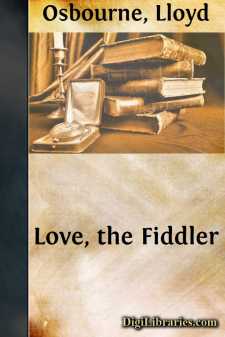Categories
- Antiques & Collectibles 13
- Architecture 36
- Art 48
- Bibles 22
- Biography & Autobiography 813
- Body, Mind & Spirit 142
- Business & Economics 28
- Children's Books 17
- Children's Fiction 14
- Computers 4
- Cooking 94
- Crafts & Hobbies 4
- Drama 346
- Education 46
- Family & Relationships 57
- Fiction 11829
- Games 19
- Gardening 17
- Health & Fitness 34
- History 1377
- House & Home 1
- Humor 147
- Juvenile Fiction 1873
- Juvenile Nonfiction 202
- Language Arts & Disciplines 88
- Law 16
- Literary Collections 686
- Literary Criticism 179
- Mathematics 13
- Medical 41
- Music 40
- Nature 179
- Non-Classifiable 1768
- Performing Arts 7
- Periodicals 1453
- Philosophy 64
- Photography 2
- Poetry 896
- Political Science 203
- Psychology 42
- Reference 154
- Religion 513
- Science 126
- Self-Help 84
- Social Science 81
- Sports & Recreation 34
- Study Aids 3
- Technology & Engineering 59
- Transportation 23
- Travel 463
- True Crime 29
The Wrong Box
by: Lloyd Osbourne
Description:
Excerpt
CHAPTER I. In Which Morris Suspects
How very little does the amateur, dwelling at home at ease, comprehend the labours and perils of the author, and, when he smilingly skims the surface of a work of fiction, how little does he consider the hours of toil, consultation of authorities, researches in the Bodleian, correspondence with learned and illegible GermansвÐâin one word, the vast scaffolding that was first built up and then knocked down, to while away an hour for him in a railway train! Thus I might begin this tale with a biography of TontiвÐâbirthplace, parentage, genius probably inherited from his mother, remarkable instance of precocity, etcвÐâand a complete treatise on the system to which he bequeathed his name. The material is all beside me in a pigeon-hole, but I scorn to appear vainglorious. Tonti is dead, and I never saw anyone who even pretended to regret him; and, as for the tontine system, a word will suffice for all the purposes of this unvarnished narrative.
A number of sprightly youths (the more the merrier) put up a certain sum of money, which is then funded in a pool under trustees; coming on for a century later, the proceeds are fluttered for a moment in the face of the last survivor, who is probably deaf, so that he cannot even hear of his successвÐâand who is certainly dying, so that he might just as well have lost. The peculiar poetry and even humour of the scheme is now apparent, since it is one by which nobody concerned can possibly profit; but its fine, sportsmanlike character endeared it to our grandparents.
When Joseph Finsbury and his brother Masterman were little lads in white-frilled trousers, their fatherвÐâa well-to-do merchant in CheapsideвÐâcaused them to join a small but rich tontine of seven-and-thirty lives. A thousand pounds was the entrance fee; and Joseph Finsbury can remember to this day the visit to the lawyer's, where the members of the tontineвÐâall children like himselfвÐâwere assembled together, and sat in turn in the big office chair, and signed their names with the assistance of a kind old gentleman in spectacles and Wellington boots. He remembers playing with the children afterwards on the lawn at the back of the lawyer's house, and a battle-royal that he had with a brother tontiner who had kicked his shins. The sound of war called forth the lawyer from where he was dispensing cake and wine to the assembled parents in the office, and the combatants were separated, and Joseph's spirit (for he was the smaller of the two) commended by the gentleman in the Wellington boots, who vowed he had been just such another at the same age. Joseph wondered to himself if he had worn at that time little Wellingtons and a little bald head, and when, in bed at night, he grew tired of telling himself stories of sea-fights, he used to dress himself up as the old gentleman, and entertain other little boys and girls with cake and wine.
In the year 1840 the thirty-seven were all alive; in 1850 their number had decreased by six; in 1856 and 1857 business was more lively, for the Crimea and the Mutiny carried off no less than nine....






